How dangerous is an enlarged heart?
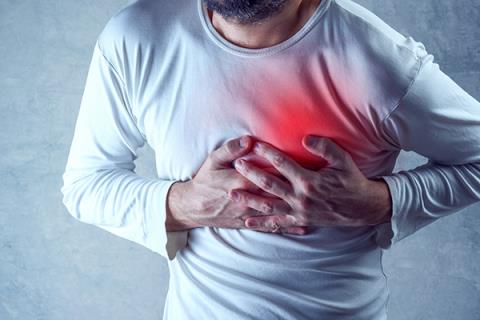
An enlarged heart is not a disease, but a sign of another disease. The term "hypertrophy" refers to a large heart on imaging studies, such as chest X-rays. Other tests are then needed to diagnose the cause of the heart becoming enlarged. So what causes the heart to be larger than normal and how to recognize and treat this condition? Follow along with the article below to answer those questions.
content
- 1. What are signs of an enlarged heart?
- 2. What causes an enlarged heart?
- 3. What are the risk factors for an enlarged heart?
- 4. What consequences can an enlarged heart cause?
- 5. How to prevent an enlarged heart?
- 6. What is the diagnosis of an enlarged heart?
- 7. How to treat an enlarged heart?
1. What are signs of an enlarged heart?
In some people, an enlarged heart causes no specific signs or symptoms. But in others, possible signs and symptoms are:
- Shortness of breath
- Abnormal heart rhythm (arrhythmia)
- Swelling)
An enlarged heart is easier to treat when detected early. Seek emergency medical care if you have any of the following signs and symptoms, which are thought to be warning signs that you are having a heart attack:
- Chest pain
- Discomfort elsewhere in the upper body, including one or both arms, back, neck, jaw, or stomach
- Severe shortness of breath
- Faint
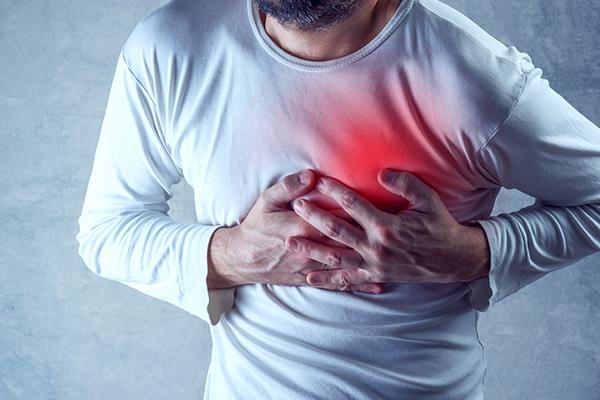
2. What causes an enlarged heart?
This can be caused by conditions that make the heart pump harder than usual or damage the heart muscle. Sometimes the heart becomes larger and weaker for no apparent reason. Also known as idiopathic hypertrophic heart disease.
Congenital heart disease, damage from a heart attack, or an abnormal heart rhythm (arrhythmia) can cause the heart to become enlarged. Other conditions associated with an enlarged heart include:
High Blood Pressure
The heart has to pump harder to get blood to the rest of the body, causing enlargement and thickening of the heart muscle. High blood pressure can cause the left ventricle to enlarge, eventually weakening the heart muscle. High blood pressure can also enlarge the upper heart chambers.
Heart valve disease
Four heart valves keep blood flowing in the right direction. If the valves are damaged by conditions such as rheumatic fever, heart defects, infections (infective endocarditis), irregular heartbeats (atrial fibrillation), connective tissue disease, certain medications, or radiation therapy In cancer, the heart can become enlarged.
Cardiomyopathy
This heart disease makes it harder for your heart to pump blood around your body. As the disease progresses, the heart enlarges to try to pump more blood.
High pulmonary artery pressure (pulmonary hypertension)
Your heart needs to pump harder to push blood between your lungs and heart. As a result, the right side of the heart is enlarged.
Pericardial effusion .
A buildup of fluid around the heart can cause the heart to become enlarged when seen on a chest X-ray.
Coronary artery disease .
With this disease, fatty plaques in the coronary arteries obstruct blood flow, which can lead to angina. When part of the heart muscle dies, the heart has to pump harder to get enough blood to the rest of the body, which in turn causes the heart to enlarge.
Low red blood cell count (anemia).
Anemia is a condition in which there are not enough healthy red blood cells to carry enough oxygen to the tissues. If left untreated, chronic anemia can lead to a fast or irregular heartbeat. Your heart has to pump more blood to compensate for the lack of oxygen in the blood.
Thyroid disease .
Both an underactive thyroid (hypothyroidism) and an overactive thyroid (hyperthyroidism) can lead to heart problems, including an enlarged heart.
Too much iron in the body (iron retention) .
Iron overload is a disorder in which your body doesn't metabolize iron properly, causing it to build up in various organs, including the heart. This causes left ventricular hypertrophy due to weakened heart muscle.
Rare diseases, such as amyloidosis .
Amyloidosis is a condition in which abnormal proteins circulate in the blood and can deposit in the heart, interfering with heart function and causing the heart to enlarge.

3. What are the risk factors for an enlarged heart?
- High blood pressure . Have a blood pressure reading higher than 140/90 mmHg.
- Family history of an enlarged heart or cardiomyopathy . If an immediate family member, like a parent or sibling, has an enlarged heart, you are more likely to get it.
- Congenital heart disease . If you were born with a disease that affects the structure of your heart, your risk of developing an enlarged heart is higher.
- Heart valve disease. Heart valve damage (The heart has four valves – aortic, mitral, pulmonary, and tricuspid – that open and close to keep blood flowing in the right direction)
4. What consequences can an enlarged heart cause?
The risk of complications from an enlarged heart depends on the part of the heart that is enlarged and the cause.
Some possible complications include:
- Heart failure . Left ventricular hypertrophy, one of the most severe causes of cardiac enlargement, increases the risk of heart failure. With heart failure, the heart muscle weakens and the ventricles dilate to the point where the heart can't pump blood around the body effectively.
- Blood clot . An enlarged heart is more likely to form blood clots inside the heart. A blood clot that enters the bloodstream will block blood flow to vital organs and even cause a heart attack or stroke. A blood clot that forms in the right heart can travel to the lungs, causing a pulmonary embolism.
- Heart murmur . In people with an enlarged heart, two of the four heart valves — the mitral and tricuspid valves — may not close properly due to dilation, creating a backward flow of blood. This flow produces a sound called a murmur. Although not always harmful, heart murmurs should be monitored by a doctor.
- Cardiac arrest and sudden death . Sometimes an enlarged heart can lead to arrhythmias. A heartbeat that is too slow to pump blood away or too fast for the heart to beat properly can lead to fainting or, sudden cardiac arrest or death.
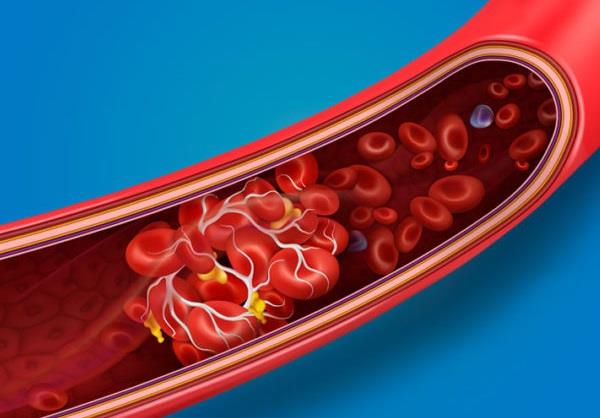
5. How to prevent an enlarged heart?
Tell your doctor if you have a family history of conditions that can cause an enlarged heart, such as cardiomyopathy. If cardiomyopathy or other heart conditions are diagnosed early, treatment can prevent it from getting worse.
Controlling risk factors for coronary artery disease – smoking, high blood pressure, high cholesterol and diabetes – helps reduce the risk of an enlarged heart and heart failure.
Reduce your risk of heart failure by eating healthy and not abusing alcohol or using drugs. Controlling blood pressure with diet, exercise, and medication also helps prevent heart failure.
6. What is the diagnosis of an enlarged heart?
If you have cardiovascular symptoms, you will likely need some tests including:
- Chest X-ray . X-ray images help assess the condition of the lungs and heart. If the heart is enlarged on an X-ray, other tests will be needed to find the cause.
- Electrocardiogram . Helps diagnose heart rhythm problems and heart damage after a heart attack.
- Echocardiography . Evaluation of the four chambers of the heart. Determine which chamber of the heart is enlarged. Look for evidence of previous heart attacks and determine if congenital heart disease is present.
- Stress test . Check how well your heart is working during physical activity. A stress test involves walking on a treadmill or riding a bicycle while your heart rate, blood pressure, and breathing rate are continuously measured.
- Cardiac computed tomography (CT) or magnetic resonance imaging (MRI) . Provides images of the heart and ribcage.
- Blood test . Check the levels of certain substances in the blood that can cause heart problems. Blood tests can also help rule out other illnesses that are causing your symptoms.
- Heart biopsy . Take a small sample of heart tissue for testing. The pressure in the chambers of the heart can be measured to see how hard the blood is pumping. Coronary angiography to check for blockages may be done during the procedure.
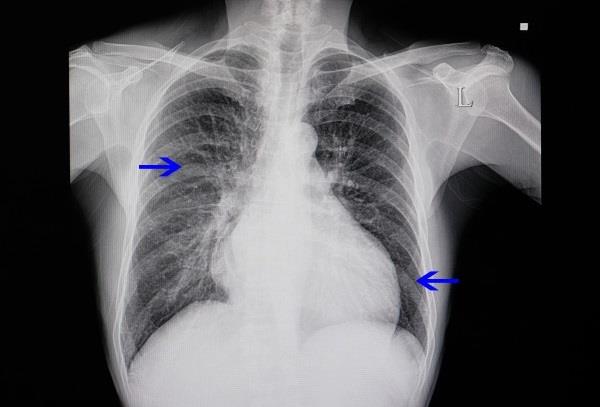
7. How to treat an enlarged heart?
Treatment of an enlarged heart focuses on addressing the cause.
Medicine
- Diuretics . Reducing the amount of sodium and water in the body, which helps reduce pressure in the arteries and heart
- Angiotensin-converting enzyme (ACE) inhibitors . Lowers blood pressure and improves the heart's ability to pump blood
- Angiotensin II receptor blockers (ARBs) . An alternative to an ACE inhibitor when an ACE inhibitor cannot be used
- Beta blockers . Lowers blood pressure and improves heart function
- Anticoagulants . Reduces the risk of blood clots, angina attacks and strokes
- Antiarrhythmic drugs . Keep your heart rate normal
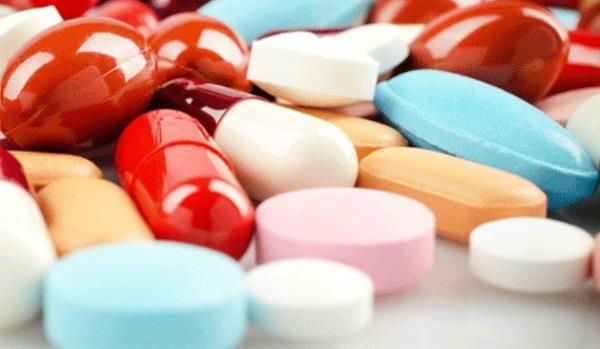
Surgery or other procedures
If medication is not enough, medical or surgical procedures may be needed.
- Heart rate device . For certain types of an enlarged heart (dilated cardiomyopathy), a pacemaker is needed. In people at risk for severe arrhythmias, drug therapy or an implantable cardioverter-defibrillator (ICD) may be an option. If the cause is atrial fibrillation, then you need procedures to get your heart rate back to normal and keep it from beating too fast.
- Heart valve surgery . If the enlarged heart is caused by heart valve disease or if it is causing heart valve problems, you may need surgery to repair or replace the valve.
- Coronary bypass surgery . If the enlarged heart is related to coronary artery disease, your doctor may recommend coronary bypass surgery.
- Left ventricular assist device (LVAD). If you have heart failure, you may need this device to help your heart pump harder. You may have an LVAD implant while you wait for a heart transplant or to treat heart failure.
- Heart transplant . If medication cannot control your symptoms, a heart transplant is a last resort. Because the number of donated hearts is often small, even people who are seriously ill can have a long wait before receiving a heart transplant.
Lifestyle change
- Quitting smoking.
- Weight loss.
- Limit salt in the diet.
- Control diabetes.
- Monitor blood pressure.
- Exercise moderately, after discussing with your doctor the most appropriate exercise regimen.
- Avoid or stop using alcohol and caffeine.
- Try to get eight hours of sleep every night.

An enlarged heart has many causes, such as pregnancy, a weakened heart muscle, coronary artery disease, heart valve disease, or an arrhythmia. Depending on the cause, the hypertrophy is temporary or permanent. If you have any cardiovascular signs or symptoms, see your doctor for an examination and advice on the most effective treatment.
Doctor Vu Thanh Do